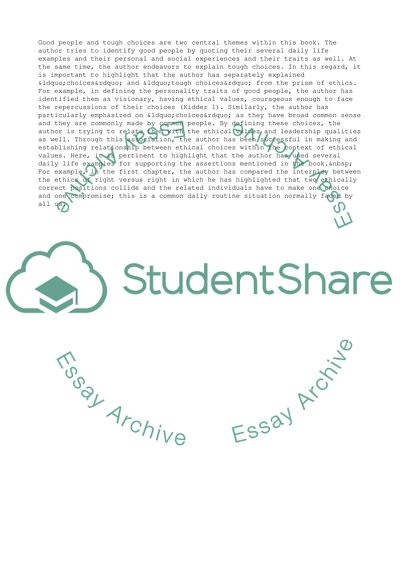Cite this document
(“How Good People Make Tough Choices Essay Example | Topics and Well Written Essays - 2000 words”, n.d.)
How Good People Make Tough Choices Essay Example | Topics and Well Written Essays - 2000 words. Retrieved from https://studentshare.org/management/1660990-how-good-people-make-tough-choices
How Good People Make Tough Choices Essay Example | Topics and Well Written Essays - 2000 words. Retrieved from https://studentshare.org/management/1660990-how-good-people-make-tough-choices
(How Good People Make Tough Choices Essay Example | Topics and Well Written Essays - 2000 Words)
How Good People Make Tough Choices Essay Example | Topics and Well Written Essays - 2000 Words. https://studentshare.org/management/1660990-how-good-people-make-tough-choices.
How Good People Make Tough Choices Essay Example | Topics and Well Written Essays - 2000 Words. https://studentshare.org/management/1660990-how-good-people-make-tough-choices.
“How Good People Make Tough Choices Essay Example | Topics and Well Written Essays - 2000 Words”, n.d. https://studentshare.org/management/1660990-how-good-people-make-tough-choices.


